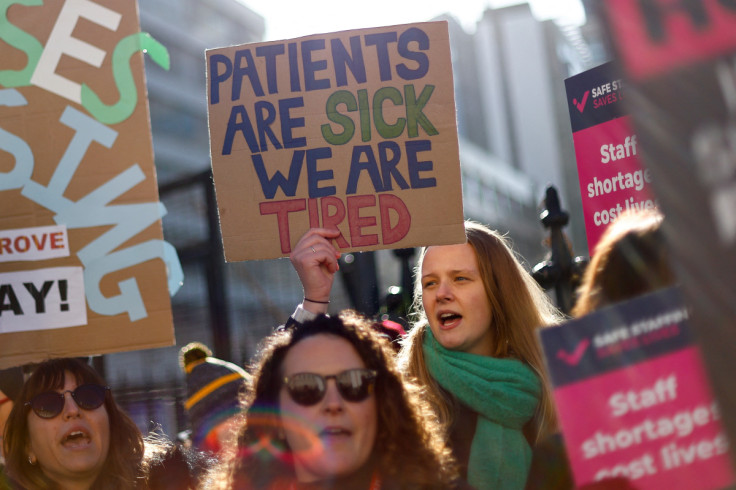Wes Streeting criticizes NHS, 'if the NHS doesn't reform, it will die'
There is a need for sustainable funding and the impact of high immigration rates on the healthcare system.

In an exclusive interview with The Sun, Wes Streeting, the Member of Parliament for Ilford North, has issued a strong warning, stating that the National Health Service (NHS) must "reform or die." Streeting's impassioned plea comes as he addresses the pressing issues of the NHS, including the need for sustainable funding and the impact of high immigration rates on the healthcare system.
Streeting, known for his commitment to healthcare reform, emphasizes the urgent need for transformative changes within the NHS to ensure its long-term viability. In the interview, he expressed concern over the impact of high immigration on the healthcare system, urging the government to prioritize funding and take necessary steps to address the challenges faced by the NHS.
Referring to the strain caused by increased demand, Streeting stated: "Our NHS is in dire need of significant reforms to confront the mounting pressures it faces. We cannot afford to ignore the impact of high immigration rates on our healthcare system any longer. Urgent action is required to safeguard the future of the NHS."
Streeting further argued: "The NHS cannot be taken for granted. It requires substantial investment and reform to meet the evolving needs of our society. Failure to act now would have severe consequences for both patients and healthcare professionals."
Acknowledging the importance of sustainable funding, Streeting called on the government to make strategic investments to support the NHS effectively. He stressed the need to prioritize resources for vital areas such as mental health services, primary care, and workforce development.
"We must provide the NHS with the financial resources it needs to deliver high-quality care to patients. Adequate funding will ensure that our healthcare professionals can meet the growing demand and provide the necessary services to those who rely on the NHS," Streeting emphasized.
The concerns raised by Streeting align with the sentiments expressed by healthcare professionals who have long advocated for substantial reforms within the NHS. The COVID-19 pandemic has further exacerbated the strain on the healthcare system, underscoring the urgency for immediate action.
Reacting to Streeting's interview, Dr Sarah Thompson, a renowned healthcare expert, commented: "Wes Streeting's call for reform resonates with the concerns of many professionals within the healthcare sector. The NHS must evolve to adapt to changing demographics, technological advancements, and the ever-increasing demand for services."
Streeting's interview has sparked a significant debate, prompting stakeholders to express their opinions on the future of the NHS and the need for comprehensive reforms. Many agree that a collective effort is required to address the challenges faced by the NHS and ensure its long-term sustainability.
As the interview gains traction, it serves as a call to action for policymakers, healthcare professionals, and the public to work together in finding sustainable solutions. The conversation spurred by Streeting's interview highlights the pressing need for reforms that prioritize patient care, improve accessibility, and address the impact of immigration on the healthcare system.
As the nation reflects on the future of its beloved healthcare institution, Streeting's interview serves as a reminder of the need for proactive measures to ensure the long-term success of the NHS.
For example, in Scotland, people living in more deprived areas had 64% more preventable hospital admissions than those living in the least deprived areas. Using a more equitable approach, about 10% of hospital bed capacity can be saved if beds in more deprived areas would be allocated to be used by those more in need.
Similarly in England, the burden of addressing inequalities in health should not be placed solely on the health service. NHS should be treated as a partner in improving the quality of people's lives to reduce their risk of contracting premature illness.
In recent weeks, concerns have been growing about a new, more infectious strain of COVID-19 that has been detected in several countries. This strain, known as B.1.1.7 or the "UK variant," has raised alarm among public health officials who fear it could lead to a surge in cases.
Meanwhile, at Southend Hospital, a surgeon recently employed a robotic device to assist in a surgical operation.
© Copyright IBTimes 2025. All rights reserved.





















